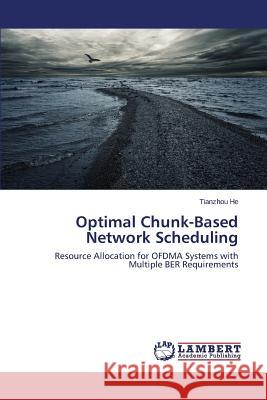Optimal Chunk-Based Network Scheduling » książka
Optimal Chunk-Based Network Scheduling
ISBN-13: 9783659714528 / Angielski / Miękka / 2015 / 104 str.
Efficient resource allocation for diverse data streams has attracted interest in future network design. We investigate the chunk-based resource allocation for OFDMA downlink, where data streams contain packets with diverse bit-error-rate (BER) requirements. Supposing that adaptive transmissions are based on a number of discrete modulation and coding modes, we derive the optimal resource allocation scheme that maximizes the weighted sum of average user rates under the multiple BER and total power constraints. With proper formulation, the relevant optimization problem is cast as an integer linear program. It is shown that the optimal strategy for this problem can be obtained through Lagrange dual-based gradient iterations with fast convergence and low computational complexity per iteration. A novel on-line algorithm is developed to approach the optimal strategy without knowledge of intended wireless channels a priori. Furthermore, the proposed approach is generalized to utility maximization of average user rates to balance the trade-off between the total throughput and fairness among users. Numerical results are provided to gauge the performance of the proposed schemes.
Efficient resource allocation for diverse data streams has attracted interest in future network design. We investigate the chunk-based resource allocation for OFDMA downlink, where data streams contain packets with diverse bit-error-rate (BER) requirements. Supposing that adaptive transmissions are based on a number of discrete modulation and coding modes, we derive the optimal resource allocation scheme that maximizes the weighted sum of average user rates under the multiple BER and total power constraints. With proper formulation, the relevant optimization problem is cast as an integer linear program. It is shown that the optimal strategy for this problem can be obtained through Lagrange dual-based gradient iterations with fast convergence and low computational complexity per iteration. A novel on-line algorithm is developed to approach the optimal strategy without knowledge of intended wireless channels a priori. Furthermore, the proposed approach is generalized to utility maximization of average user rates to balance the trade-off between the total throughput and fairness among users. Numerical results are provided to gauge the performance of the proposed schemes.











